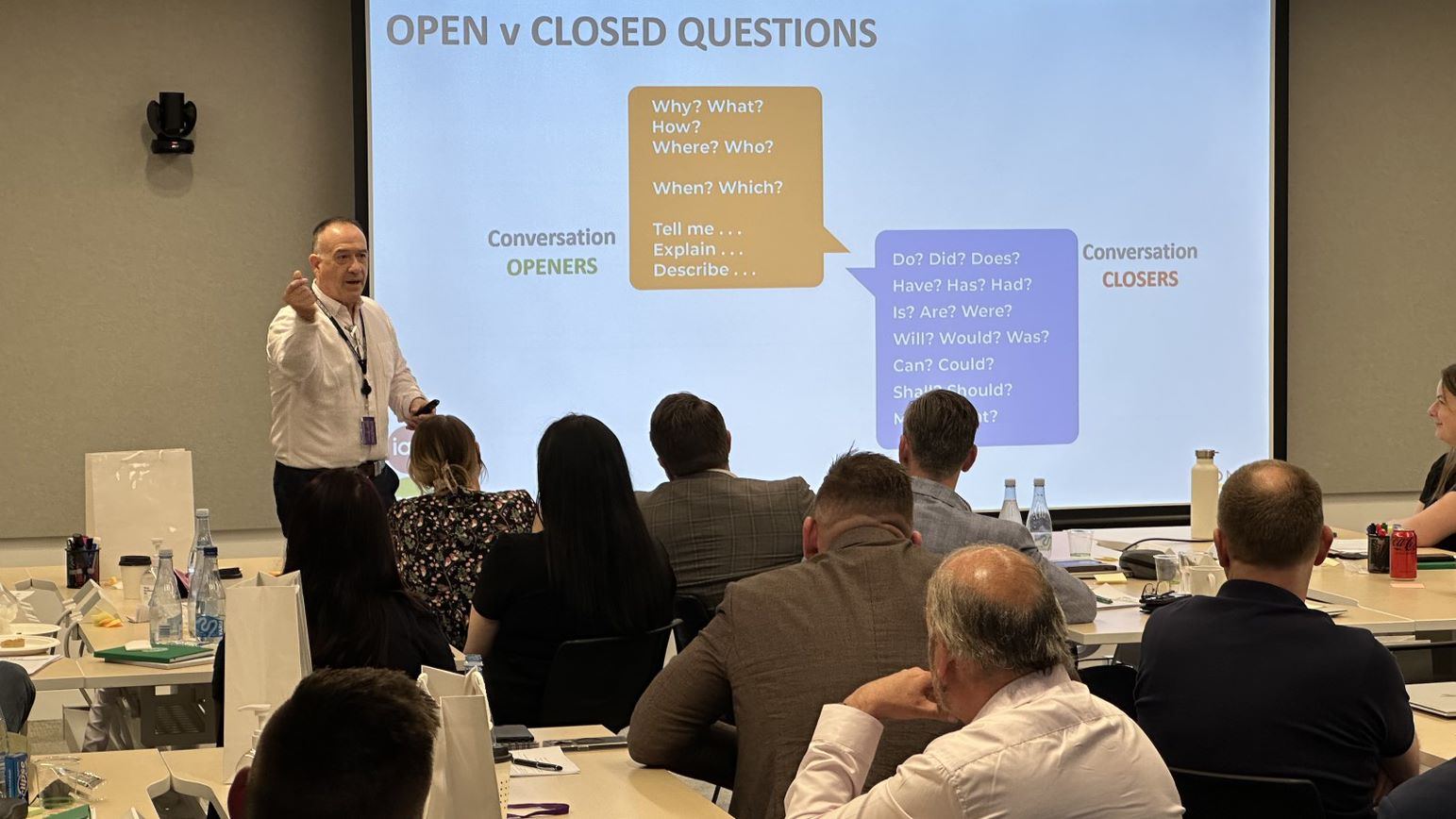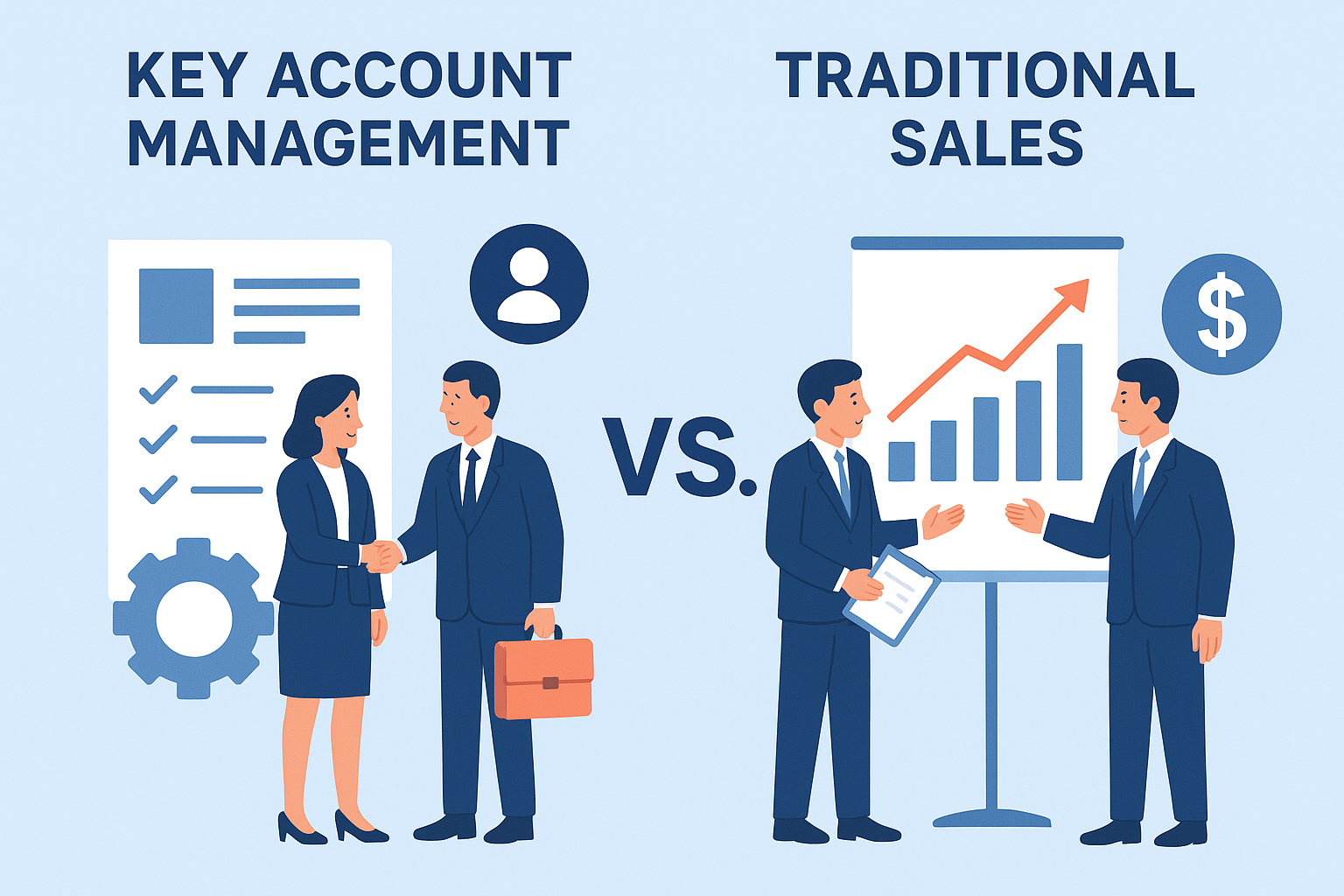Sales training has come a long way. What worked well in the past isn’t always enough to keep sales teams competitive, confident, and consistent. As we move into 2026, buyers are more informed, sales cycles are more complex, and salespeople are expected to add value at every interaction. This means choosing the right sales training program for your business has never been more important.
But with so many options available, from online courses to one-off workshops and everything in between, how do you actually choose a sales training program that delivers real results rather than just short-term motivation?

Start with Your Business Goals, Not the Training Content
One of the biggest mistakes businesses make when choosing sales training is starting with the content rather than the outcome. Before you look at programs, providers, or methodologies, take a step back and ask what you actually want to improve in 2026.
Are you looking to:
- Increase close rates?
- Shorten sales cycles?
- Improve prospecting confidence?
- Lift average deal size?
- Develop stronger sales conversations?
- Or build more accountability across the team?
The right sales training program should clearly link to your business goals. If a provider cannot explain how their training supports revenue growth, pipeline quality, or sales execution, it is a red flag.
Training should never be generic. It should be aligned to where your business is now and where you want it to go.

Look for Behaviour Change, Not Just Inspiration
Motivational sales training can feel great in the moment. People leave energised, optimistic, and ready to conquer the world. The problem is that motivation fades quickly if it is not backed by practical tools and consistent reinforcement.
In 2026, effective sales training programs focus on behaviour change. That means helping salespeople do things differently on a daily basis.
- How they prepare for calls
- How they ask questions
- How they handle objections
- How they manage their pipeline
- How they follow up.
When assessing a program, ask how it helps salespeople apply what they learn in real sales conversations. Look for role plays, practical frameworks, real-world examples, and post-training reinforcement.
If the training does not translate into new habits, it will not translate into better results.
Make Sure It Fits Your Sales Team, Not the Other Way Around
Every sales team is different. Industry, sales cycle length, customer type, experience level, and sales style all matter. A strong sales training program should adapt to your team rather than forcing your team to adapt to it.
In 2026, flexibility is key. Your sales team may include a mix of experienced performers, newer recruits, remote sellers, and sales managers who are also expected to coach. The right program should cater to these differences.
Ask whether the training can be customised. Can it incorporate your language, your sales process, and your real challenges? Does it support different communication styles and strengths within the team?
At KONA Training, everything we do is tailored to our clients. Our sales training techniques include proven sales coaching methods and common sense strategies that define training success.

Don’t Ignore the Role of Sales Managers
Sales training often fails because managers are not equipped to reinforce it. If managers are not confident coaching the behaviours being taught, the training will slowly disappear under the pressure of targets and deadlines.
When choosing a sales training program in 2026, look for one that includes sales leaders and managers. Managers need tools to coach, observe, and hold their teams accountable in a supportive way.
Training that involves managers creates consistency and ensures the learning sticks long after the workshop ends.
Think Long-Term, Not One-Off
Sales training should be viewed as an investment, not an event. One-off workshops can be useful, but they rarely create sustained performance improvement on their own.
The best sales training programs in 2026 are structured, ongoing, and supported over time. This might include:
• Follow-up sessions
• Coaching
• Refresher workshops, or
• Practical tools that keep the learning alive
Ask what happens after the training. How is progress measured? How are skills reinforced? How does the program evolve as your team grows? Sustainable sales performance comes from continuous development, not quick fixes.

Choose a Partner, Not Just a Provider
Finally, choose a sales training partner who understands your business and genuinely cares about your outcomes.
A good partner will challenge your thinking, ask the right questions, and work with you to design training that
delivers measurable impact.
They should be just as focused on your success as you are.
Ready to Choose the Best Sales Training Program for 2026?
If you want sales training that is practical, tailored, and focused on real-world sales performance, KONA Training can help. We work with businesses to design and deliver customised sales training programs that build confident sales teams, improve execution, and drive sustainable results.
To learn more about choosing the right Sales Training Program for your team, click here.
Contact KONA Training today to discuss tailored sales training for your sales team in 2026 and beyond.
Call 1300 611 288 or Email info@kona.com.au to find out more!
Author – Garret Norris – https://www.linkedin.com/in/garretnorris/














































































































